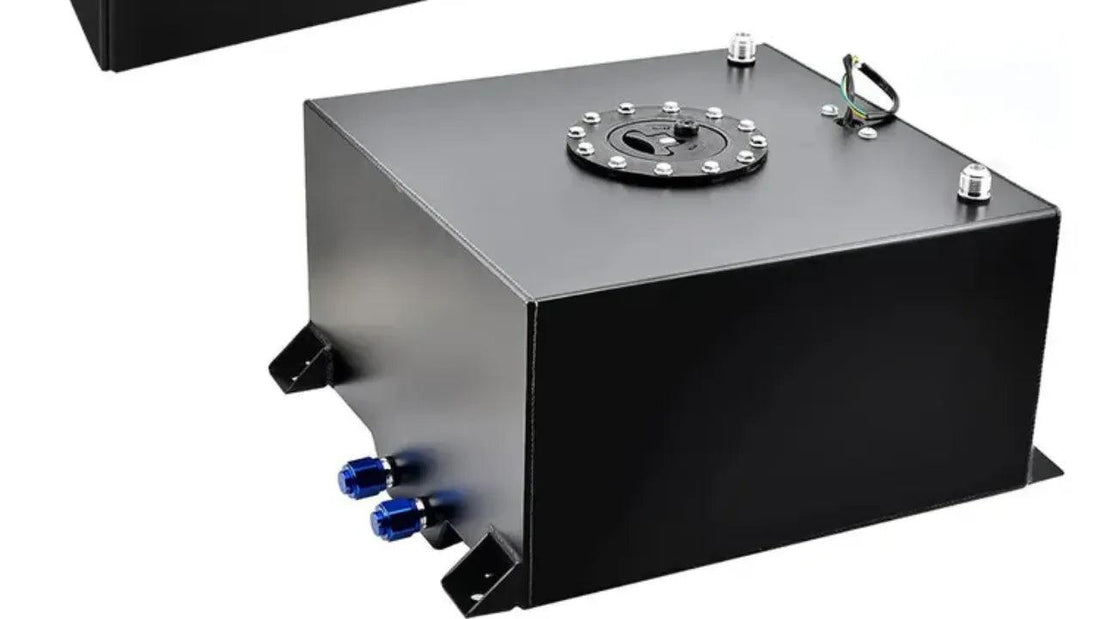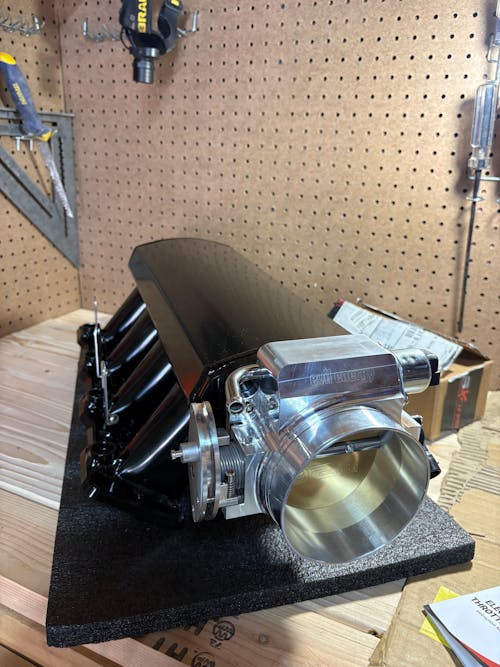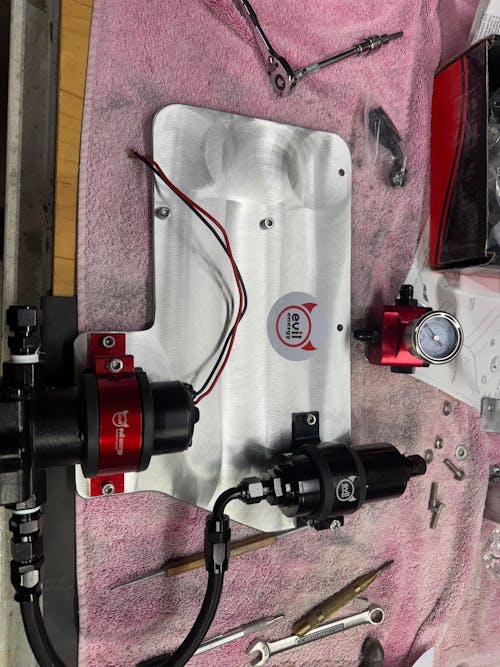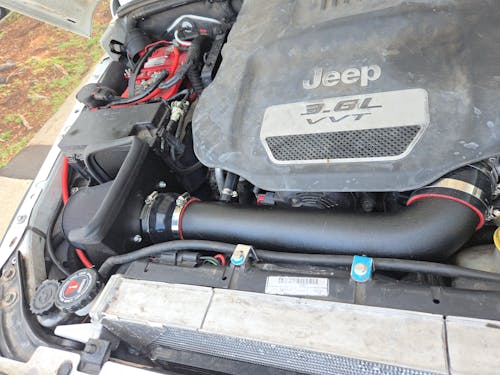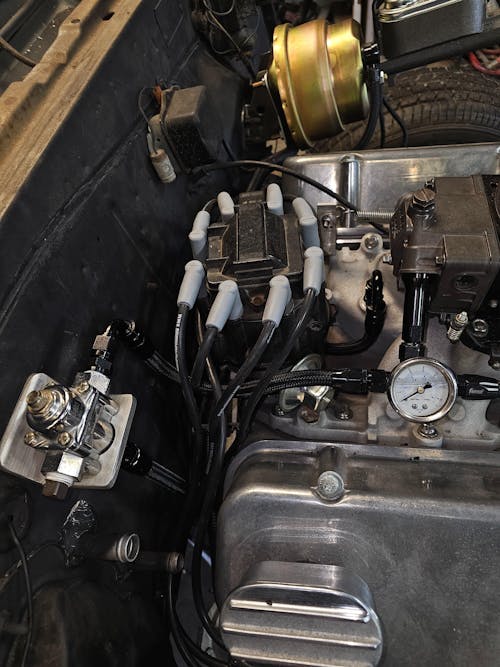Fuel cells: the future of clean power for automobiles
If you're interested in cars and want to learn about the latest technology, fuel cells are an exciting topic that deserves your attention. With the global focus on sustainability and reducing carbon emissions, fuel cell technology is becoming increasingly important in the automotive industry.
This guide will help you understand what fuel cells are, how they work, their types, advantages, and disadvantages. Whether you're a car enthusiast, a potential buyer, or just curious about this innovative technology, you'll find valuable information here.
So, if you want to stay updated on the latest advancements in car technology, keep reading!
TIn This Guide
- The Basics of Fuel Cells
- How Do Fuel Cells Work?
- What Are Different Types of Fuel Cells?
- What are the Pros and Cons of Fuel Cells?
- What's the Difference Between a Fuel Tank and a Fuel Cell?
- What Is the Primary Use of a Fuel Cell?
- Automotive Applications
- Stationary Power Generation
- Portable Power Solutions
- How to Choose a Fuel Cell for Your Car
- Ready to Transform Your Vehicle with a Fuel Cell
The Basics of Fuel Cells
Fuel cells are devices that convert chemical energy from hydrogen (or other fuels) and oxygen into electrical energy through an electrochemical reaction. Unlike traditional internal combustion engines that burn fuel to create power, fuel cells generate electricity with water vapor and heat as the only byproducts. This process significantly reduces harmful emissions, making fuel cells an attractive option for vehicles aiming to lower their environmental impact.A fuel cell consists of three main components:
- Anode: This is where the hydrogen enters the cell.
- Electrolyte Membrane: This special membrane allows protons to pass through while blocking electrons.
- Cathode: This is where the oxygen enters from the air.
How Do Fuel Cells Work?
Let's continue from the last part. At the heart of a fuel cell's operation lies an electrochemical reaction. Here's a simplified breakdown of the process:
- Hydrogen Supply: Hydrogen gas is fed into the anode side of the fuel cell.
- Electrochemical Reaction: At the anode, hydrogen molecules are split into protons and electrons. The protons pass through the electrolyte while the electrons travel through an external circuit, generating electricity.
- Oxygen Introduction: Oxygen (from air) enters the cathode side.
- Recombination: At the cathode, protons, electrons, and oxygen recombine to form water vapor.
This seamless conversion of chemical energy into electrical energy showcases why fuel cells are heralded for their efficiency-often achieving efficiencies exceeding 60% under optimal conditions.
What Are Different Types of Fuel Cells?
Just like there are various flavors of ice cream, fuel cells come in different varieties, each tailored to specific applications and energy requirements. Here's a quick rundown of the most common types:
Proton Exchange Membrane Fuel Cells (PEMFC)
PEMFCs operate at relatively low temperatures (60-100°C) and are known for their high power density and rapid start-up capabilities. These features make them ideal for automotive applications where space is limited and quick refueling is essential.
Solid Oxide Fuel Cells (SOFC)
SOFCs function at much higher temperatures (500-1,000°C) and utilize a solid ceramic electrolyte. They are recognized for their durability and high efficiency but typically have longer start-up times compared to PEMFCs. SOFCs are often used in stationary power generation due to their ability to run on various fuels.
Alkaline Fuel Cells (AFC)
AFCs use an alkaline electrolyte and are efficient but sensitive to carbon dioxide levels in the air. They have been primarily used in space applications due to their lightweight design and reliability.
Phosphoric Acid Fuel Cells (PAFC)
Operating at higher temperatures (150-200°C), PAFCs offer robustness and efficiency but have longer start-up times than PEMFCs. They find applications in stationary power generation as well as some automotive uses.
Molten Carbonate Fuel Cells (MCFC)
MCFCs operate at very high temperatures (600-700°C) and can utilize various fuels, including natural gas. They are typically employed for large-scale power generation due to their high efficiency and flexibility in fuel usage.
What are the Pros and Cons of Fuel Cells?
Like any technology, fuel cells come with their own set of advantages and drawbacks. Let's weigh them out:
Pros:
-
Eco-Friendly: Fuel cells are incredibly clean, emitting only water vapor and heat as byproducts, making them a sustainable and environmentally friendly energy source.
-
High Efficiency: Fuel cells are highly efficient in converting chemical energy into electrical energy, with energy conversion efficiencies ranging from 40% to 60%.
-
Versatility: Fuel cells can be scaled to meet a wide range of energy needs, from powering small devices to large-scale power plants.
-
Reliable: With no moving parts, fuel cells offer a reliable and consistent energy supply, minimizing maintenance requirements.
-
Quiet Operation: Unlike combustion engines, fuel cells operate silently, making them ideal for noise-sensitive applications.
Cons:
-
High Costs: The initial investment in fuel cell technology can be substantial, with expensive materials and manufacturing processes driving up the costs.
-
Hydrogen Storage and Distribution: Storing and distributing hydrogen fuel can be challenging, as it requires specialized infrastructure and safety measures.
-
Limited Fuel Options: While fuel cells can operate on various fuels, hydrogen is the most commonly used and readily available option.
-
Water Management: Proper water management is crucial in fuel cell systems to maintain optimal performance and prevent flooding or drying out of the membrane.
-
Durability Concerns: Certain components of fuel cells, such as the membrane and catalysts, may degrade over time, affecting their performance and lifespan.
However, ongoing research and development efforts are continually addressing these challenges, making fuel cells an increasingly viable and attractive energy solution.
What's the Difference Between a Fuel Tank and a Fuel Cell?
While both fuel tanks and fuel cells serve critical roles in powering vehicles, they function quite differently:
- Fuel Tanks store liquid fuels like gasoline or diesel. Their primary function is to hold fuel until it is needed by the engine for combustion.
- Fuel Cells, on the other hand, convert chemical energy from fuels like hydrogen directly into electricity through electrochemical reactions. This process eliminates combustion entirely.
In essence, while a fuel tank is merely a reservoir for storing energy until it is converted into motion via combustion engines, a fuel cell actively transforms chemical energy into usable electrical energy without producing harmful emissions.
What Is the Primary Use of a Fuel Cell?
The primary use of fuel cells today lies within transportation-particularly in vehicles aiming for zero emissions. However, their versatility extends beyond cars:
Automotive Applications
Many manufacturers are investing heavily in hydrogen fuel cell vehicles (FCVs), which offer longer ranges compared to battery electric vehicles (BEVs). FCVs typically provide refueling times similar to gasoline vehicles while eliminating tailpipe emissions entirely.
Stationary Power Generation
Fuel cells provide reliable backup power systems for homes and businesses, ensuring continuity during outages. They can also serve as primary power sources for remote locations where traditional grid access may be limited or unreliable.
Portable Power Solutions
Smaller fuel cell systems can power electronic devices or serve as emergency power sources during outdoor activities or disasters. Their lightweight design makes them suitable for portable applications where conventional batteries may fall short.
As technology advances, we can expect even broader applications across various sectors-potentially transforming how we think about energy consumption altogether.
How to Choose a Fuel Cell for Your Car
Alright, now that we've covered the essentials of fuel cells. Next up, let's pick the right one for your car. Here are some key factors to keep in mind when choosing a fuel cell for your automotive needs:
-
Power Output: Consider the power output requirements of your vehicle. Fuel cells come in various sizes and capacities, ranging from a few kilowatts for smaller cars to hundreds of kilowatts for larger vehicles or heavy-duty applications.
-
Fuel Type: Most FCVs currently on the market use hydrogen as their primary fuel source. However, some fuel cells can also operate on other fuels like methanol or natural gas. Choose a fuel cell that aligns with the available fuel infrastructure in your area.
-
Efficiency: Look for fuel cells with high energy conversion efficiency, as this translates to better fuel economy and lower operating costs. Proton Exchange Membrane Fuel Cells (PEMFC) are known for their high efficiency in automotive applications.
-
Durability and Lifespan: Fuel cells are designed to operate for thousands of hours, but their lifespan can vary depending on the materials used and operating conditions. Choose a fuel cell with a proven track record of durability and longevity.
-
Operating Temperature: Different fuel cell types operate at different temperatures. For automotive applications, low-temperature fuel cells like PEMFCs are preferred as they can start up quickly and operate efficiently in a wide range of conditions.
-
Fuel Storage and Delivery System: Consider the fuel storage and delivery system required for your chosen fuel cell. Hydrogen storage, in particular, requires specialized tanks and safety measures, which can impact the overall cost and design of your vehicle.
Make an informed choice when selecting a fuel cell for your car. Evaluate your specific needs and prioritize factors like power output, efficiency, and fuel availability to ensure you get the most out of this cutting-edge technology.
Ready to Transform Your Vehicle with a Fuel Cell
To wrap things up, fuel cell technology is really making waves in the automotive world in 2024. It's a cleaner alternative to traditional combustion engines, and understanding how these systems work can help you make smart choices for your vehicle. If you're thinking about upgrading your ride or just want to keep up with the latest tech, fuel cells are definitely worth considering.




![[20FT] EVIL ENERGY PTFE Fuel Line Kit, complete black hose & fittings set, 180-day return](http://www.ievilenergy.com/cdn/shop/files/Test-2025-Evilenergy-125598065_165x.png?v=1742144807)
![[16FT] EVIL ENERGY PTFE Fuel Line Kit, black braided hose, fittings, free shipping & return](http://www.ievilenergy.com/cdn/shop/files/Test-2025-Evilenergy-125598171_165x.png?v=1742144807)
![CPE Fuel Line[25FT]](http://www.ievilenergy.com/cdn/shop/files/25FTCPE_FuelLine_165x.png?v=1735220649)
![CPE Fuel Line[20FT]](http://www.ievilenergy.com/cdn/shop/files/20FTCPE_FuelLine_165x.png?v=1735220649)
